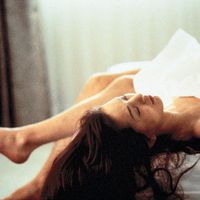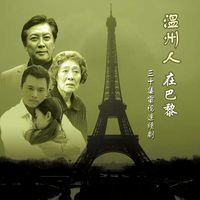Interview With Guillaume De Seille
This month, SEA-IMAGES meets with Guillaume de Seille from Arizona Films, the co-producer of the Korean-Mongolian-French film, Desert Dream (Hyazgar).
Desert Dream is the third feature film of Korean-Chinese director Zhang Lu, best know for Grain in Ear (China, 2005). The film tells the story of two North Korean refugees, a mother and her son. They find shelter at home of a Mongolian man who plants trees in the desert. Desert Dream was recently screened at the competition of Berlinale.
Can you tell us about your background and how you met Zhang Lu?
After spending 10 years at the TV channel, Canal Plus, I started my career as an independent producer six years ago. In the beginning, I produced mostly African films, especially in Senegal and Mauritius. Recently, I got more and more interested in Asian cinema. My first Asian project is a film from Kyrgyzstan, which will start shooting this month. And, thanks to the Pusan Promotion Plan to which I was invited with my Kyrgyz project in October 2005, I met the Chinese director Zhang Lu and the Korean producer Park Jin-won, who were presenting Dooman River at PPP. They were sitting at the desk next to me. I had seen his second film Grain in Ear in Cannes, and the film touched me a lot. So I could start conversation with them quite easily, and we were able to get to know each other. That is how I came to work on his third film, Desert Dream, as a co-producer. Ironically, we were able to start and complete this film even before the shooting of my Kyrgyz project. It was also in Pusan last year that we started approaching major festivals with a first rough cut of Desert Dream and started talking to sales agent. For my projects and probably for similar projects, the Pusan International Film Festival is the perfect and most efficient place to start with.
Had you already had any experience with Asian filmmakers?
Not at all. I made 4 films in Africa, a region where its cinema is inseparably related to European, and especially French cinema. Korea has its own long tradition in filmmaking and possesses a very well-established film industry. They are maybe slower than French men when it comes to administrative things and contracts. By contrast, when it comes to practical things and production, they are incredibly fast. I was really amazed to see how fast our Korean editor could finish his work.
What was your role in the production of Desert Dream?
I was able to secure a financial support from CNC (Centre National de la Cinématographie) as late as June 2006 whereas the shooting was supposed to start in July. KOFIC (Korean Film Council)’s support was also confirmed in June. Once set off, the preparation for the production went very fast. As for the technical crew, it was even impossible to bring some French technicians to the shooting place since the film was not going to be shot in Korea but in Mongolia. It was already complicate enough to bring Korean technicians to Mongolia! Fortunately, Korean crew are very well-trained and talented, so there was no need to have French technicians for key positions. Also, the Korean post-production company we worked with is one of the best in the world. So there was no point in proposing a French company to the director and the Korean producer. It would have been a lot more expensive and difficult to work with a French one. However, I didn’t want to limit my role to financing only, and so, I proposed Zhang Lu and Park Jin Won to work on the sound editing and the music in Paris, which we did in November 2006.
How was the film financed? Were you confident to secure CNC's Foreign Language film fund?
The project secured a state subsidy from Korea and France, KOFIC and CNC respectively. To my eyes, the project also deserved a support from a TV partner such as Arte. Unfortunately, our project was rejected. So we lacked actually a certain sum that we, producers, had to fill personally. We need good luck to a certain extent when we produce a film. But it's mainly a matter of one’s faith in the project. Good luck actually played an important part in securing the CNC fund since they choose only 4 to 5 projects out of 30 or more every 3 or 6 months. At first, I applied for Fond Sud, and then to the Foreign Language Film Fund. When I got a positive reply from the latter, I withdrew my application for Fond Sud. The project was special in the sense that it was eligible for Fond Sud thanks to the Chinese nationality of the director and the Mongolian shooting location. Usually, a Korean film cannot apply for Fond Sud. But it was also eligible for the Foreign Language Film Fund. Thanks to Grain in Ear, the director had already a good reputation. Unfortunately this film was not sold internationally because of lack of experience in sales. Dessert Dream really needed a partner who could help out the film in the international market.
The film has just premiered in Berlin in the Competition section. Where will the film be presented next?
The film is invited to the Hong Kong International Film Festival, which takes place in March. We have also received an invitation from a festival in Portugal. I am considering different propositions for its French premiere, which will be very important for finding a French distributor. Zhang Lu has received another grant from KOFIC and will start shooting his new film in May.


